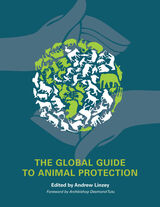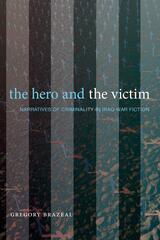
Drawing on the individual and collective experience of recognized intelligence experts and scholars in the field, Analyzing Intelligence provides the first comprehensive assessment of the state of intelligence analysis since 9/11. Its in-depth and balanced evaluation of more than fifty years of U.S. analysis includes a critique of why it has under-performed at times. It provides insights regarding the enduring obstacles as well as new challenges of analysis in the post-9/11 world, and suggests innovative ideas for improved analytical methods, training, and structured approaches.
The book's six sections present a coherent plan for improving analysis. Early chapters examine how intelligence analysis has evolved since its origins in the mid-20th century, focusing on traditions, culture, successes, and failures. The middle sections examine how analysis supports the most senior national security and military policymakers and strategists, and how analysts must deal with the perennial challenges of collection, politicization, analytical bias, knowledge building and denial and deception. The final sections of the book propose new ways to address enduring issues in warning analysis, methodology (or "analytical tradecraft") and emerging analytic issues like homeland defense. The book suggests new forms of analytic collaboration in a global intelligence environment, and imperatives for the development of a new profession of intelligence analysis.
Analyzing Intelligence is written for the national security expert who needs to understand the role of intelligence and its strengths and weaknesses. Practicing and future analysts will also find that its attention to the enduring challenges provides useful lessons-learned to guide their own efforts. The innovations section will provoke senior intelligence managers to consider major changes in the way analysis is currently organized and conducted, and the way that analysts are trained and perform.

A comprehensive collection provides guidance and deep insight from a variety of experts in this emerging field
The rapidly developing field of interreligious studies fosters scholarship engaging two or more religious traditions at a time. Inherently multidisciplinary, the field brings the academic consideration of religions into conversation with the humanities and social sciences, employing relational, intersectional, experiential, and dialogical methodologies as it examines the interrelationship of individuals and groups with differing alignments toward religion.
Edited by Lucinda Mosher, The Georgetown Companion to Interreligious Studies features an international roster of practitioners of or experts on Judaism, Christianity, Islam, Hinduism, Jainism, Sikhism, Buddhism, Ruism, Humanism, and African, North American, and South American Indigenous lifeways. Each author offers a unique perspective on the nature of this emerging discipline.
This companion provides fifty thought-provoking chapters on the history, priorities, challenges, distinguishing pedagogies, and practical applications of interreligious studies. Anyone who seeks a deeper appreciation of this relatively new academic field will find it useful as a textbook or research resource.


This book is a translation of Muhammad Abduh’s Al-Islam wa-l-Nasraniyya maa al-Ilm wa-l-Madaniyya (Science and Civilization between Islam and Christianity). Abduh was an Egyptian jurist, religious scholar, theologian, and reformer of Al-Azhar—Egypt’s oldest university and a renowned seat of Islamic learning—who died in 1905. His impact on modern Islam cannot be overstated. In fact, much of modern Muslim thought has, in one way or another, been a reaction to his ideas. Although he is the subject of numerous English studies, only one treatise of his has been translated into English: Risalat al-tawhid (Theology of Unity) by Ishaq Masaad and Kenneth Cragg, in 1966.
Far too little attention has been paid to the treatise translated here and its impact on the Islamic theology of Christianity. This first English translation fills a serious gap in the genre of Islam and Christian-Muslim relations.
READERS
Browse our collection.
PUBLISHERS
See BiblioVault's publisher services.
STUDENT SERVICES
Files for college accessibility offices.
UChicago Accessibility Resources
home | accessibility | search | about | contact us
BiblioVault ® 2001 - 2024
The University of Chicago Press









